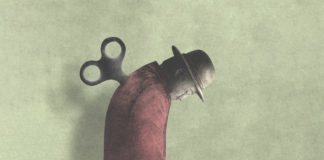“The woman with the book” | The weakness that unleashes the power of God
God uses the traits we dislike as well as our weaknesses to create something great, beyond our abilities and imagination. This is the message that pervades the pages of "The Woman with the Book", the biography of the missionary Gladys Aylward.
The (un)expected Messiah
“God's viewpoint is sometimes different from ours—so different that we could not even guess at it unless He had given us a Book which tells us such things.”[1](Corrie ten Boom)
The opposite of love is not hatred (part 1)
For centuries, the sacrifice of God the Son and the divine plan for man’s salvation have generated several dilemmas and raised more questions than we could imagine. And the answers that have been found have revealed more implications of the cross than we used to believe, whether we are Christians or non-Christians, believers or skeptics.
Love in action: Corrie and Betsie ten Boom
Many times we don’t have the patience to wait for an answer to our prayers, and other times we don’t even know when we've received it. For the ten Boom family, the answer to some prayers came 100 years later.
Christians do not understand unconditional forgiveness
Forgiveness is the central idea in Christianity that sets it apart from other religions.
The fears that keep Christians from talking about Jesus
God gave Christians a message to spread. The whole Bible talks about creation, about the fall of the world into sin, but also about the existence of a Saviour, in the person of Jesus Christ.
Forgiveness heals the one who forgives
Everyone thinks forgiveness is a lovely idea until he has something to forgive. – C.S. Lewis
God also has a mother’s heart
Some Christians venerate the Virgin Mary, multiplying her attributes and exaggerating her qualities to the point of deification. Other Christians go to the opposite extreme and trivialise Mary's personality and contribution, barely recognising her basic qualities.
The end of the world: on the list of convictions that frighten us
A good survey of people's thoughts on the end times would not seek to find out whether people believe the world will end or not. Rather, it would seek to know what their thoughts are on when and how the end will come. Regardless of the source of their belief—religious or secular—most people have come to see the idea of the end of...
The darker side of our world
The world of the homeless is the darker side of our world. It is inhabited by vagrants, drug addicts, and the powerless. This world has its own rules, customs, pleasures, and pains, but lacks meaning and peace. And those who enter this world struggle to leave it.
COVID-19: The pandemic that transforms us into different people
In Europe, one in twenty people suffer from depression, and one in four will experience depression during their lifetime. In the United States, major depressive disorder affects about five percent of the population.
What we can learn from children facing death
For many years, Dr Jonathan Ward was a military chaplain. When I talked to Dr Ward about his long career, we touched upon some sensitive topics: Does the presence of a Christian chaplain in the military mean God’s approval of military operations? How does a military chaplain serve in the context of a conflict?
The illusion of connection
I sat slouched on the edge of my bed, blue light illuminating my face in the dark. It was the tenth time I’d checked my phone in the space of five minutes. I grimaced. Was something wrong with me?
COVID-19: Crisis prayer and the crisis of our prayers
I was descending from Omu Peak, in the Bucegi Mountains, with a few dozen young people. It had not been an ideal hike, and we were behind schedule. The forest made the darkness even thicker as it began to cover the mountain, and slowly, our minds as well.
What religion has to say about anxiety
A cold flash, like the strange, icy feeling after a burn, runs through his body with every breath. He feels his heart racing. It feels like it is counting down to the moment when it will explode—or, mercifully, to the moment when he will turn his pillow to the cooler side, and finally fall asleep.


























